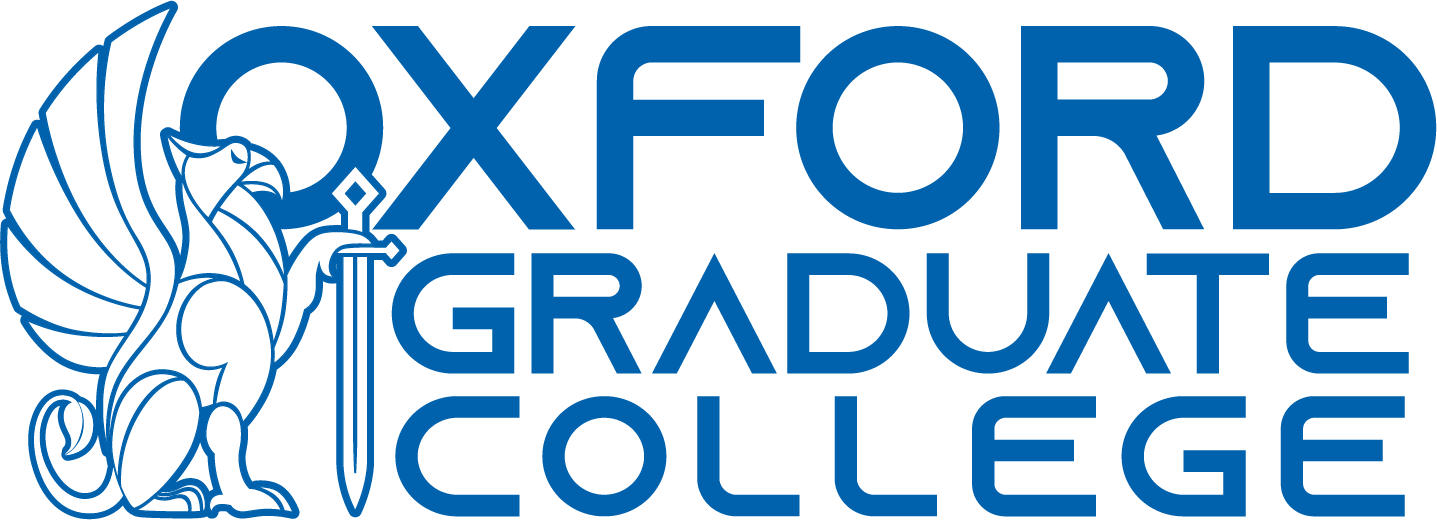
PROGRAMME SPECIFICATION
NAME OF PROGRAMME:
GRADUATE DIPLOMA- PROJECT MANAGEMENT
Philosophy
The level 6 Graduate Diploma in Project management has evolved into a key competence for most organisations in the public and private sectors. Driven by recent business trends such as fewer management layers, greater flexibility, increasing geographical distribution and more project-based work, project management has grown beyond its roots in the construction, engineering and aerospace industries to transform the service, financial, computer and general management sectors. The programme aims to develop individuals within the areas of project leadership and management, enabling them to effectively communicate with and manage their teams in a changing and increasingly complex project environment. Furthermore, it will support individuals to become autonomous work based learners capable of managing, leading, evaluating, reasoning, and reflecting upon their learning and ethically undertaking work-based projects, which meet both their own needs and those of their organisation. The programme is focused on the development of individual learners by enhancing their personal capability, and can also be structured for organisational capability development in a group setting within organisations looking to create communities of learners engaged in a series of parallel learning journeys.
Information on Award
| Final Award | Graduate Diploma- Project Management |
| Programme Title | Graduate Diploma- Project Management |
| LEVEL | 6 |
| Duration of Course | Suggested Time: 18 Months
Can be completed in less time. |
| Entry Requirements | Applicants must:
· Possess at minimum any related Associate Degree in the relevant field. · · EDUQUAL Level 5 Diploma · RQF/QCF/NQF Level 5 Diploma · SCQF Level 8 Diploma · EQF/FHEQ Level 5 Diploma · Be at least 21 years of age
|
| TOTAL QUALIFICATION TIME (HOURS) | 1800 |
| CREDITS | 180 |
| Major pathways within the course – Where course can lead to different areas of emphasis | Completion of the course can encourage participants to pursue further studies into:
· MSc in Project Management · Postgraduate Diploma in Strategic Management · Postgraduate Diploma Logistics & Supply Chain Management |
| Targeted occupations for graduates | After completion of the course, graduates can serve in organizations in positions as:
· Project Manager · Project Coordinator |
Programme Aims
| The main aims of the Graduate Diploma in Project Management are to: |
· Offer a range of knowledge and skills which will enable graduates to build on their first degree and/or work experience, as part of their personal development plan, to become professionals capable of managing projects in a wide variety of situations. · Produce graduates with the ability to critically analyses and understand the nature and context of projects using the appropriate project management tools and methods. · Develop the students’ professional attitudes as well as their interpersonal and entrepreneurial skills, as expected by the leading project management professional bodies. · Provide students with critical and evaluative perspectives of the theory and practice of project management and develop their capacity for independent and self-reflective learning, ensuring their future contribution to research and development. · Encourage continuous personal development and growth of reflective project practitioners capable of managing their own learning. |
The Learning Outcomes
| On completion of this program, participants should be able to:
|
· To critically analyses the short- and long-term impacts of contexts and forces on organisations, programmes and Projects in a range of business and culture contexts.
· To formulate, present, and debate complex ideas, engage with concepts, and create responses to challenges and requirements in a project management context. · To critically analyses and synthesise the contemporary methodologies, APM and PMI bodies of knowledge, research and practices at the forefront of Project Management. · To systematically apply project management philosophies, principles, methodologies and tools to effectively plan, manage and deliver projects in complex and unpredictable situations. · To independently research, design and undertake substantial investigations to address significant areas of theory and practice in project management. · To communicate and present complex material effectively in written, visual and oral form to specialist and non-specialist audiences. · To act effectively within a team and also autonomously, demonstrating initiative in planning and implementing tasks at a professional level. · To apply transferable professional and practical skills that demonstrate a responsible, ethical and sustainable approach to managing projects. |
Programme Structure and Requirements
| UNIT TITLE | STRATEGIC LEADERSHIP |
| TQT (Hours) | 200 |
| UNIT AIM & SUMMARY | This unit provides an in-depth understanding of the key principles and practice of leadership This will enhance the individuals’ knowledge, skills and attributes to effectively engage in the role and responsibilities required of an effective team player and leader of a team; being proactive in innovation and improvement to inform strategy and business planning within the organisation. |
| UNIT TITLE | STRATEGIC MANAGEMENT |
| TQT (Hours) | 200 |
| UNIT AIM & SUMMARY | The aim of this unit is to examine the process of strategic management, analyse approaches to strategy formulation and examine approaches to strategy implementation. Strategic Management is an integrative capstone unit that seeks to provide a comprehensive look at organisations. Although it will draw upon many of the business courses that you have been exposed to, it does go beyond merely tying together the various functional courses you have had. This unit will also to develop learners’ understanding of strategic and change management models, as well as the ability to review strategic plans, to propose strategic options, to create implementation plans and to lead organisational changes. |
–
| UNIT TITLE | QUALITY & RELIABILITY IN ENGINEERING |
| TQT (Hours) | 200 |
| UNIT AIM & SUMMARY | The aim of this unit is to teach the importance of quality as its relates to which performance of goods and services meets expectations, whereas the reliability is the probability that a system or component performs its intended function for a specified interval under stated conditions. This unit is about the design process that leads to reliable systems with built-in quality. It enables measurement of effectiveness and repeatability. The aim of this unit is to develop knowledge and understanding of artefact quality, reliability, safety, and maintainability by measurement and planning. |
–
| UNIT TITLE | HEALTH AND SAFETY LAW, REGULATION. |
| TQT(Hours) | 200 |
| UNIT AIM & SUMMARY | The aim of this unit is to give learners an understanding of international frameworks for health and safety legislation and regulation, how these frameworks are set, and the subsequent obligations on organisations to comply. The learner will explore the role played by industry, professional bodies and media communities to influence the promotion of positive health and safety outcomes locally, nationally and globally. |
| UNIT TITLE | STRATEGIC PROCUREMENT |
| TQT (Hours) | 200 |
| UNIT AIM & SUMMARY | This unit aims to provide student’s understanding of how procurement strategy is developed in business. The unit provides a special emphasis on the development and management of strategic sourcing relationships and promotes an understanding of the strategic role of supply management in effective supply/demand/value chain operations. |
| UNIT TITLE | PLANNING, CONTROLLING AND LEADING PROJECTS |
| TQT (Hours) | 200 |
| UNIT AIM & SUMMARY | This unit aims to introduce learners to the realities of developing and managing a project. It will also introduce learners to the challenges of project management practice in the global business arena. It aims to promote thinking critically about project management as complex, process-based cultural systems and as constantly developing with the high performing team efforts. As increasing number of firms have project development and project management activities, understanding the efficient project management is of vital importance. Learners will learn about the roles and responsibilities of a project team members. Various level of management skills will be studied with special focus on success factors, monitoring and control. |
| UNIT TITLE | PROCUREMENT RISK AND CONTRACT MANAGEMENT |
| TQT (Hours) | 200 |
| UNIT AIM & SUMMARY | The aim of the unit is to enable the student to understand the core concepts of procurement along with the importance of identifying and managing risks related to procurement and contract management. The learners will also develop a critical understanding of various legislative frameworks important for procurement and consider frameworks for risk assessment in the procurement context. |
–
| UNIT TITLE | PROJECT AND LOGISTICS MANAGEMENT |
| TQT (Hours) | 200 |
| UNIT AIM & SUMMARY | The aim of this unit is to allow the learner to understand concepts of portfolio management and the associated features. The value of having a Project Management Office will also be examined and the stages of establishing and effective project management office will be considered. Learners will also examine the supply chain ecosystem and review IT frameworks appropriate for logistics and supply chain complexities. |
–
| UNIT TITLE | INFORMATION MANAGEMENT FOR PROJECT MANAGERS |
| TQT (Hours) | 200 |
| UNIT AIM & SUMMARY | The aim of this unit is to develop critical understanding of managing operations and information systems within projects. The interrelationships within functional areas will be examined and the influence of contemporary factors. Learners will explore organizational strategy in relation to capacity to plan for products and consider the value of inventory management using information systems and inventory scheduling. |
–
| Research Skills (EPA) | Research Project – End Point Assessment |
| Description | A comprehensive research project encompassing all of the knowledge and skills gained throughout the duration of the programme. |
Information about Assessment Regulations
Completion of all assessments are mandatory in order to obtain an overall final grade for the unit. To be awarded the Graduate Diploma, a student will be assessed and graded on all assessments. The use of any of the following Assessment Methods may be utilised in the individual assessments
- Online quizzes
- Course Assignments
- Self-study assignments
- Portfolio
